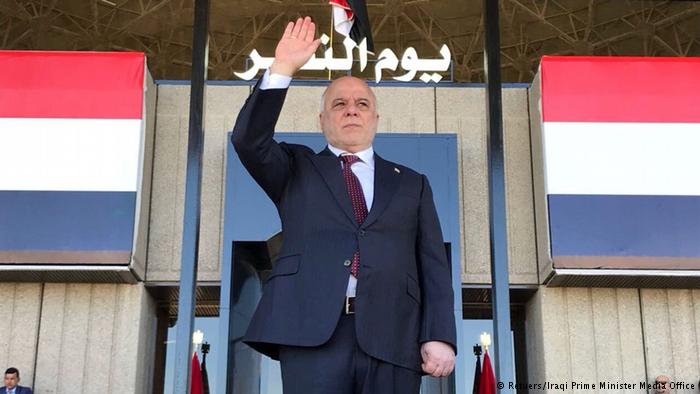Hearty handshakes and propitious claims aside, Iraqi premier Haidar al Abadi was called in for briefing. Behind closed doors, US secretary of State Rex Tillerson warned that should Abadi and Popular Mobilization Unit (PMU) affiliated and Iranian sponsored militias form a joint alliance, the carrot of Saudi funding would cease.
Fast forward two months, exactly what Americans forbade materialised — an alliance — binding incumbent prime minister Abadi with suspect militia parties, Badr, Kata’ib junud al Imam Ali and Kata’ib Hezbollah, to name a few. Taking ‘victory’ as its chosen name, failure was its only destiny, faltering a day after its formation.
Disapproval from Abadi’s backers in Riyadh and Washington, some suspect, may have allowed Abadi to be swayed in a new direction, fearing retributive policies and the economic blowback this would have for him and his country. Reactions were split, some feigning surprise while others shunned the latter, accusing them of misplaced outrage.
Unity Alliance leader, Osama al Nujaifi, is the representative force of Sunni communities across Nineveh, Saladin, Anbar and parts of Baghdad has entered the race, but his alliance is missing one important element, their constituencies while the near total wreckage of their cities remains unchanged since Abadi claimed his ‘final’ triumph against the Islamic State terrorist group.
Leader of the newly branded ‘Wisdom party’ Ammar al Hakim, attacked the mere suggestion of postponing the vote Nujaifi requested. Wisdom spokesman Fadi Shammari cited ‘vague excuses’ and slammed the suggested postponement as a flagrant violation of their “parliamentary oath” while ignoring the difficulty in establishing durable electoral centres in zones of conflict lacking social and economic infrastructure.
Criticism was also sounded by populist leader Muqtada al Sadr, who does what Muqtada does best, play the moderate card. Sadr published a handwritten statement in which he claimed that Abadi’s short-lived militia romance marks the death of “patriotism, reform and cross-sectarian” healing in the embattled country. Kurds have also been quick to voice criticism, but appear to have gone one step further. The Kurdish Democratic party (KDP) has threatened to boycott the election but are unlikely to follow through, fearing economic suicide. Putting Sadr’s gamesmanship aside, important lessons can be extricated from his observations.
The withdrawal of militia factions from Abadi’s victory alliance not only cost him the confidence of western and autocratic backers throughout the Gulf, it illustrates Abadi’s lack of popularity among the strongest candidates whom he will compete against. Notwithstanding canvassing efforts intended to help Abadi redeem himself before the Iraqi street, few have questioned why Abadi would extend an olive branch to old faces, rebundled, given upgraded name badges.
The other unresolved question is why are two leaders from the same party (Al Dawa) running separately (Abadi and former premier Nuri al Maliki) electoral campaigns. Belief in the good cop/bad cop notion is foolish, but advantageous for peddlers of the myth that Dawa party members are generally welcomed when repeated failures perpetrated by its members have sparked around-the clock protests, since Nouri al Maliki was handed his seat in power. America seeks to prolong Abadi’s prime ministerial posture but only if militias, as promised by him, can be sidelined from political life.


 RSS Feed
RSS Feed